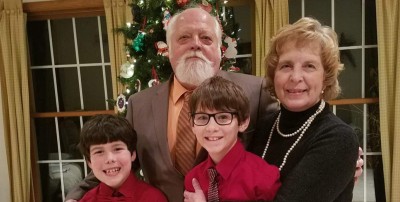
When Dan Plesniarski, 67, found out in November 2019 that he needed his aortic heart valve replaced, he never imagined he’d have a new valve and be back on his feet before Christmas.
Plesniarski, a resident of Andreas, was a candidate for transcatheter aortic heart valve replacement (TAVR), a nonsurgical alternative to open heart surgery offered through Lehigh Valley Heart and Vascular Institute. The procedure typically does not require an incision or general anesthesia, making recovery quick. For Plesniarski, that meant spending Christmas with his twin grandsons just six days after his procedure.
A timely diagnosis
Plesniarski has a family history of heart disease and had been experiencing shortness of breath and fatigue for a while. When the symptoms increased, his wife and daughter urged him to see a cardiologist. “I ran out of breath really quickly,” he says. “I didn’t have chest pains, but I was tired all the time. It just seemed to be getting worse.”
Cardiologist Cheri Silverstein Fadlon, MD, with LVPG Cardiology–Lehighton, ordered a cardiac catheterization, a noninvasive procedure used to diagnose certain heart conditions. It revealed severe aortic valve stenosis, a narrowing of the aortic valve that can develop with age or be caused by a congenital birth defect.
“Even though you may not have a clear hereditary disorder, you can inherit risk factors for aortic stenosis,” Silverstein Fadlon says. “Anyone with a family history of valve disease should tell their doctor about it so we can take proactive measures, identify the symptoms early and provide treatment.” In Plesniarski’s case, the best treatment was valve replacement using the TAVR procedure.


